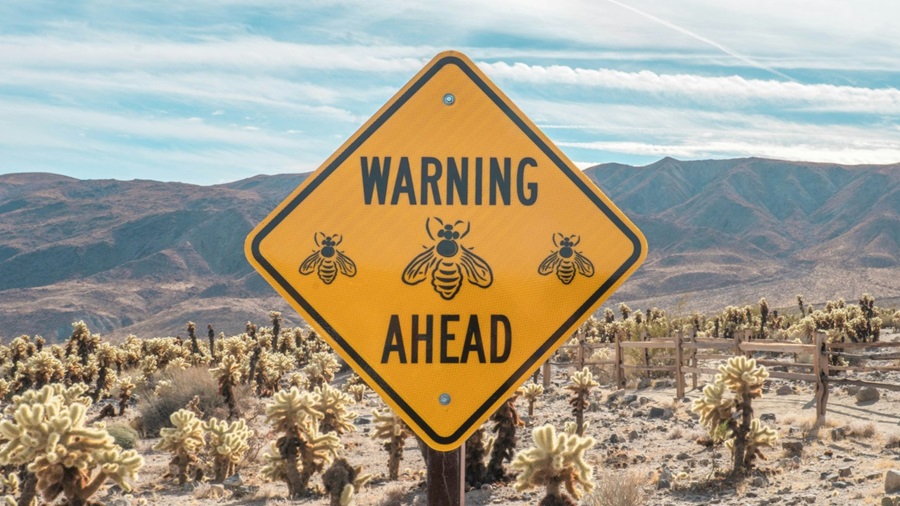Most writers will tell you that ending a book can be intensely emotional. We pour our souls—and sometimes years of our time—into our novels. Finishing a manuscript is a huge event. It can leave you feeling on top of the world, glowing with success. It can plunge you into an era of listlessness and depression, waiting for the next book idea to hit you. Or it could leave you feeling sad that you’ll never get to write that particular first draft again. My first book I ever finished felt like a bad breakup while other book endings left me feeling so triumphant that I launched into my next project immediately.
But the point is that authors care a lot about our book endings. And we should. How you end your story is your reader’s very last impression. And if it doesn’t hit, your reader might feel like they wasted their time on your book, something NO author wants.
So. You Might Be Asking HOW to End a Book . . .
To be clear, I’m not here to tell anybody how their story ought to end. Good book endings are about as diverse as stories themselves. There are happy endings and sad endings. Cozy, feel-good endings or jarring endings that leave readers haunted. Endings that neatly resolve themselves. Or endings that are so ambiguous that they make people angry and frustrated. I firmly believe that any type of ending can be excellently executed.
But I also believe that all good endings—and I do mean all of them—have five major commonalities. Let’s dive in.

5 Tips on How to End a Book Well
Tip #1: Answer Your Story’s Main Question
Conflict is the heart of storytelling, and every story poses some kind of question that your reader wants answered. Will the hero save the world? Who is the killer? Will those two fall in love? Will she change? Can the power of family overcome this problem? No matter what story you’re telling, the big question needs a conclusion for the story to feel satisfying in the end.
So if you’re wondering how to end a book well, definitely answer the big question by the final page. Readers want the “so what” of why this story exists and what it’s saying about being human. The message of your book doesn’t have to be completely literal or spelled out in a narrated epilogue. But it does need to be there for a story to end well. Whatever question you posed at the outset of the story, for the sake of your dear reader, please answer it.
Tip #2: Make Your Climax the Highest Point of the Action
Ending a book well is a balancing act. You don’t want the ending to come out of nowhere and feel rushed. But you also don’t want the final act to drag on and on until your reader oozes onto the floor in sheer boredom. The easiest way to find this balance is by intentionally making your climax the highest point of the action. Climaxes aren’t always showy or complex or violent, but they do need to be the moment of highest drama in the story.
There’s a reason why the build-up to the climax is called the rising action. Everything in your plot should all be building to the big climactic event. The peak of the book. If this peak happens too early in the story, this is the fastest way to make your ending feel anticlimactic—insert disappointing. If you’re wondering how to end a book well, let your climax erupt as close to the end of Act III as you can and include only what you have to in the falling action post-climax section of the book. This will make your pacing feel just right.

Tip #3: Complete the Main Character’s Arc
This is a huge one. Even if you have a great message and a fantastic climax in your story, if the main character is one-dimensional and pointless, your ending won’t have nearly the impact that it could. A story is a journey through which characters learn, overcome obstacles, and hopefully emerge on the other side with new skills, new outlooks, or sometimes a new and improved personality. Characters are meant to grow, especially if they’re the protagonist. If a character is the same person they were at the beginning of the story by the end, that’s often a recipe for reader frustration.
So complete the arc, whatever it might be. If a character is trying to overcome their fear of rabid raccoons, show that resolution on screen. If your young heroine yearns to stand up to her snooty wizard grandpa and open her own shop, for heaven’s sake, let her take a definitive step toward that goal. When stories end too soon or go on for so long that they morph into a completely different story than we started in, readers might end up asking why they picked up this book.
To be fair, characters failing at their original goal could be exactly the ending you’re going for. There’s a saying that main characters sometimes don’t get what they want, but they always get what they need. And every protagonist needs to complete their transformative arc for a book ending to be truly satisfying.
Tip #4: Tie Up Loose Ends and Keep Your Promises
Good endings MUST deliver on the promises an author made. There’s a dramatic principle called Chekhov’s Gun that illustrates this point perfectly. Basically if you’re going to hang a gun on the wall, it needs to go off by the end of the story. Similarly, if you’re going to introduce a principle, a magical rule, a dangerous personality trait, or a burning desire for a character, please deliver on that promise. If you don’t, then why bring up that detail?

Another important principle of how to end a book well is that every subplot must reach some kind of conclusion. Even if that conclusion is an open one that readers can interpret for themselves, it still needs to happen. Otherwise, why include that subplot at all? I’m not saying that all questions need to be answered in a story. But again, if we don’t have the time or desire to conclude a subplot, that’s probably a sign that it needs to be cut. It’s okay to trust your readers to figure out some things on their own rather than telling them everything. But if you do leave a question unanswered, do it intentionally and for good reasons. Otherwise you’ll be accused of plot holes.
Tip #5: Leave Your Reader with One Strong Emotion
Truly good endings make readers feel something. What that feeling is depends on the story, of course. Maybe you want them to feel devastated by a main character’s sacrifice. Or hopeful that love can overcome anything. Or vicariously delighted that those two FINALLY got together. Maybe even disturbed that they can relate to an antihero’s final act of hatred. Emotions are what make a book linger in a reader’s imagination for weeks, months, or years after they finish a great story. Leaving your audience with a final powerful emotion in the last chapter is the secret to making your story memorable.

To me, ending with a strong emotion is the difference between an okay book and a wonderful book that leaves readers wanting more of your work. That’s really how to end a book well: give readers something to remember through an emotion that they’ll never forget. ❧




